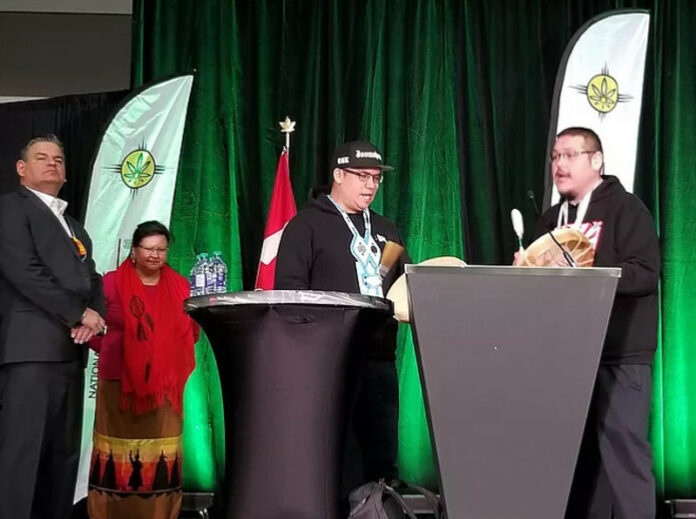BY NICHE CANADA
From economic benefits, to health and safety, to treaty rights and sovereignty, cannabis legalization is having an impact on Indigenous communities across Canada and spurring important discussions about what the path forward should look like and how it should be created.
There’s no question that there are significant benefits to capitalize on and some communities have gotten a head start in the industry.
For example, the Opaskwayak Cree Nation (OCN) in Manitoba was the first Indigenous group to become the largest private shareholder of a cannabis clinic chain, holding 10 per cent of the shares of National Access Cannabis (NAC).
Chief Christian Sinclair of OCN stated “We wanted to be the first mover in this industry from an Indigenous perspective.” He sits on NAC’s board of directors and says the cannabis revenue stream will be put towards initiatives like youth and recreation programs and infrastructure projects.
But, other leaders say Indigenous communities are facing inequities and barriers and that getting a slice of the cannabis industry should have been part of Canada’s reconciliation with Indigenous peoples. They argue that they were not consulted during the legalization process and were unable to decide how the new regime would roll out in their communities.
READ ALSO: Cannabis Innovation Program launching for Indigenous entrepreneurs
The Senate’s Aboriginal peoples committee recommended the federal government set aside 20 per cent of all licenses for Indigenous cannabis ventures. That hasn’t happened.
And, Ottawa left First Nations out of its revenue-sharing agreement with provinces. Ottawa signed a pact that requires provincial governments to charge a 10 per cent excise tax on cannabis sales and allows provinces to get 75 per cent of the estimated $400 million in annual proceeds from that tax. Advocates had urged the federal government to treat First Nations as an 11th province in that agreement.
These were some of the issues discussed last month in Ottawa at the second National Indigenous Cannabis & Hemp Conference, which attracted about 300 attendees from Indigenous communities and businesses from across Canada. Sovereignty, Indigenous partnerships and licencing were the main themes that emerged from the event

Two federal ministers spoke at the conference – Health Minister Ginette Petitpas Taylor and Border Securities Minister Bill Blair, the minister responsible for administering the Cannabis Act. Both Ministers made encouraging statements on the need to further include Indigenous peoples in the hemp and cannabis industry.
Minister Taylor stressed that her government is supporting Indigenous communities who want to have a role in the cannabis landscape, and Minister Blair pointed out that Indigenous Services Canada has recently modernized its economic development policies in order to address participation in the cannabis industry.

So, while there are a number of questions and concerns on policy, process, and participation that Indigenous groups need answered, it’s clear that these communities must be given the opportunity to fully participate in our country’s cannabis industry in a manner that is based on mutual trust and respect. And, it’s through engagement, consultation and collaboration that we can ensure they are able to address concerns and seize the economic opportunities and social benefits that will flow from the legal cannabis industry.




















